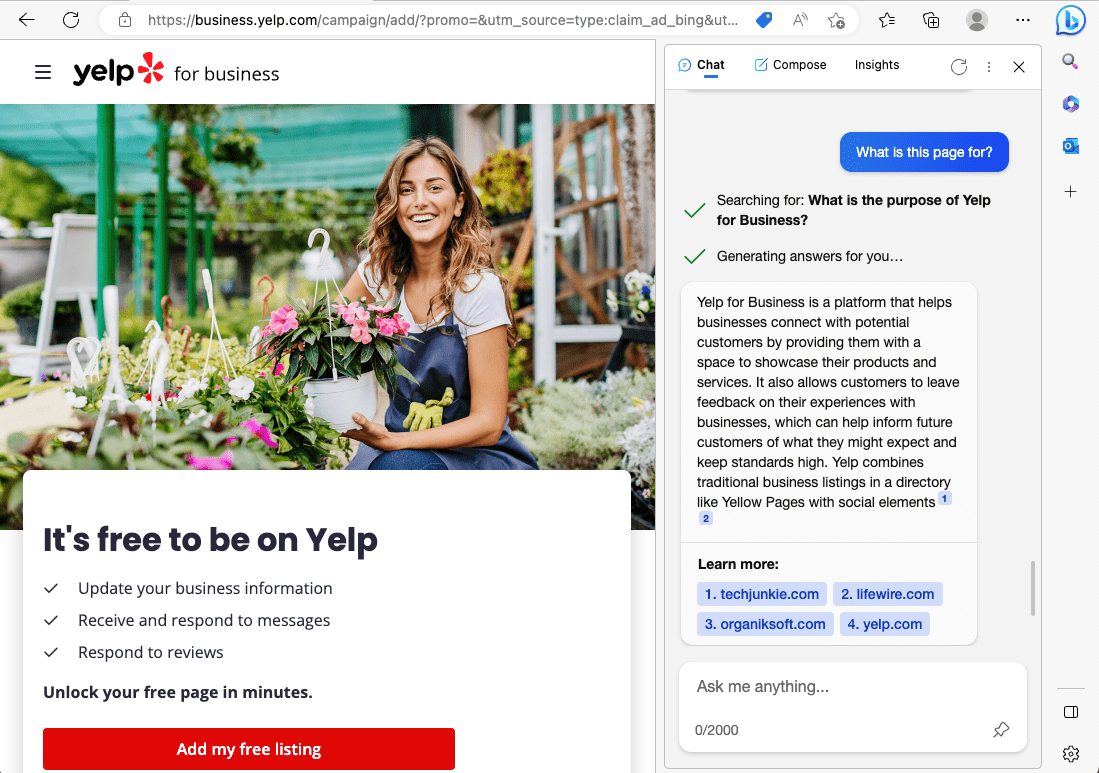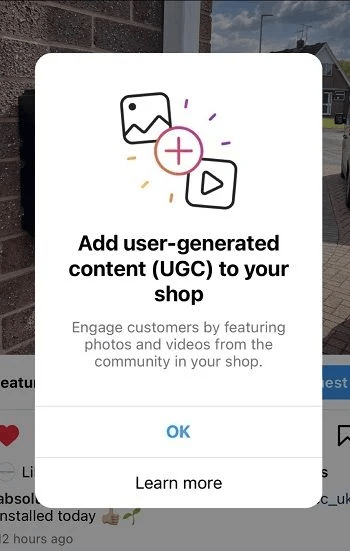Local Memo: What Google May Announce at This Year’s I/O
Local Memo: What Google May Announce at This Year’s I/O
In this week’s update, learn about Google’s possible announcements at this year’s I/O; the rollout of plugin support for ChatGPT; an Instagram tool to help brands find UGC; the rise of Twitter alternative Bluesky; Google’s clarifications on page experience; and new texts from Google confirming business listing details.
What Google May Announce at This Year’s I/O
Over at 9 to 5 Google, Abner Li has posted some predictions about Google’s likely announcements at the annual I/O conference, typically the event where most of Google’s major product and feature rollouts for the year occur. This year’s I/O event is scheduled for May 10.
On the AI front, Li points out that Google is already trialing generative AI features in Gmail and Docs, and has offered sneak previews of image generation in Slides as well as automated notetaking in Meet. Li predicts that when these and similar features roll out to the general public, their cost may be offset by restricting them to paid Google One subscribers.
Li predicts there will be a major announcement of some kind around the full integration of AI into Google Search, as well as the potential addition of a chatbot built into the Chrome browser, similar to the browser companion Microsoft has already released for Edge.
Other anticipated announcements have to do with Android XR, Wear OS 4, and Find My Device support for third-party accessories. You can register to attend I/O virtually at https://io.google/2023/.
Chat companion in the Microsoft Edge browser, possibly coming soon to Chrome
ChatGPT Internet Browser Plugin Rolling Out
OpenAI is reportedly rolling out to alpha testers the plugin announced in March that would connect ChatGPT to the live internet, along with plugins permitting users to train the chatbot on specialized datasets, to interpret code, and to connect with third-party services like Zapier, OpenTable, and Expedia. OpenAI documentation describes how developers can theoretically connect ChatGPT to other third-party services by creating their own plugins via API.
ChatGPT is supposed to automatically invoke any plugin it needs to accomplish a task, though plugins can also be activated by users. Some users have reported spotty performance with the plugins thus far, stating that the internet browsing plugin often fails to function or works slowly. Guardrails seem to prevent the browsing plugin from accessing certain sites, presumably due to the unreliability of their information.
In other ChatGPT news, the Italian government has lifted the ban that was recently imposed on the chatbot tool, citing OpenAI’s adequate response to the privacy concerns that caused the government to issue the ban. Among other changes, OpenAI has created an opt-out setting for users who don’t want their data to be stored or used by the company.
New Instagram Tool Helps Brands Use UGC
Instagram is testing a feature that helps retailers find and utilize user-generated content for marketing purposes. Business users who follow the prompt in the screenshot below will be taken to a curated list of posts from Instagram users where the business has been tagged. The business will be able to request permission from users to feature their products in those posts, and to showcase user posts in product pages and other shopping pages that feature the business. Instagram suggests this will be an easy way for brands to find “authentic content” about their products and provide peer recommendations that will appeal to the Instagram user community.
Instagram’s new UGC prompt for retail businesses, courtesy Social Media Today
Could Bluesky Replace Twitter?
Twitter founder Jack Dorsey is debuting a new social network called Bluesky which aims to be an improved version of Twitter, built around the concept of decentralization. Bluesky’s main goals are to make it easier to combat abuse and disinformation and to give its user community more input on the algorithms that determine feed content, as well as the rules governing use of the platform. Unlike some decentralized platforms — such as Mastadon, a Twitter alternative many users fled to in response to the Musk acquisition, only to find the platform confusing and unwieldy — Bluesky seems to be gaining an early following, with celebrity users like Representative Alexandria Ocasio-Cortez and several Hollywood directors and actors becoming prominent users and attracting attention to the social network. Data.ai reports that Bluesky is now the eighth most downloaded social media app, despite the fact that it is available by invite only. Its interface is reportedly very similar to Twitter, with additional features allowing users to control the kinds of content they see.
Google Clarifies that Page Experience Is a “Signal,” Not a “System”
In a post on April19 that proved confusing to the SEO community, Google announced several revisions to its help content around page experience. The post explained that page experience itself should no longer be considered a ranking system, despite the fact that the company had announced two separate, widely discussed “page experience updates” in 2021 and 2022 — the first for mobile and the second for desktop. The clarifications appear to be related to Google’s recent commentary about the need to distinguish more consistently between “systems” (self-contained ranking algorithms) and “updates” (major changes to one or more systems).
A third concept, “signals,” seems to apply to page experience and its main component, Core Web Vitals. In recent days, Google has issued further explanation, stating that page experience should be considered a ranking signal but not a ranking system. The same is apparently true of mobile friendliness, page speed, and site security, which were also effectively demoted when Google removed them from its list of retired ranking systems. Google’s Danny Sullivan has stated that in reality these were never ranking systems, but rather “signals used by other systems.” The main takeaway, according to Sullivan, is that “Google’s core ranking systems look to reward content that provides a good page experience.”
Google May Be Verifying Business Info via Text
Google is apparently texting businesses to confirm the accuracy of their contact info, according to several reports on Twitter. The text messages appear to originate from an authentic Google support number. They request confirmation of details like the business phone number and hours of operation. Barry Schwartz points out that Google’s help documentation states that the company may call or text a business to confirm its information. Still, commentators are stating that they’ve never seen texts coming from Google before, and some have advised business clients to ignore them until Google confirms they are legitimate.






